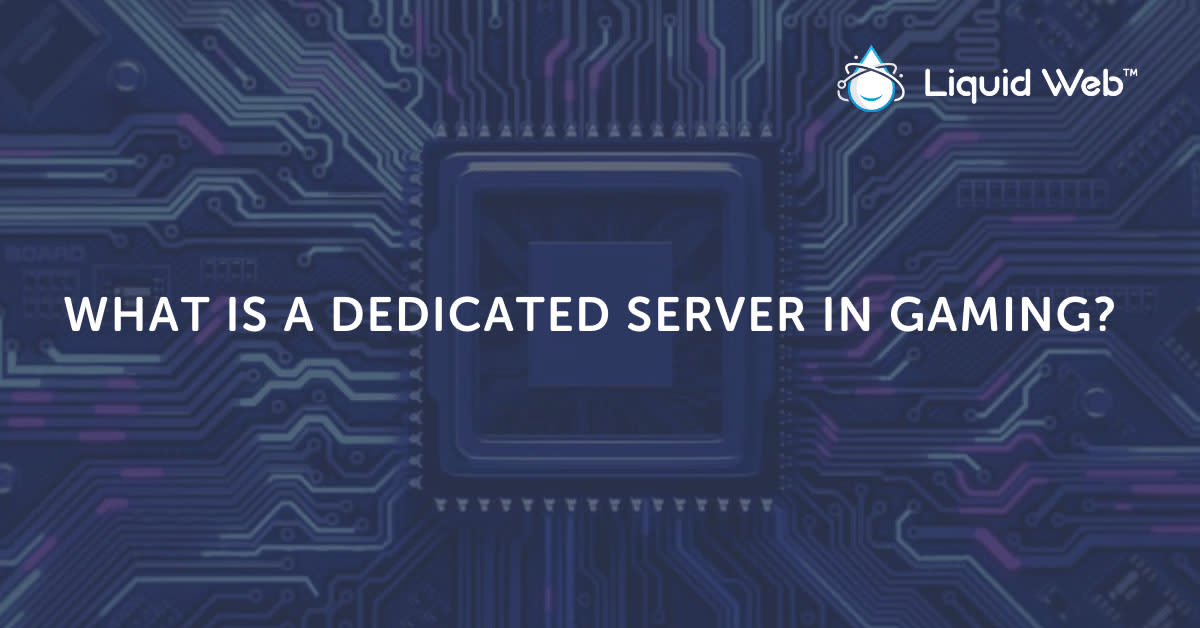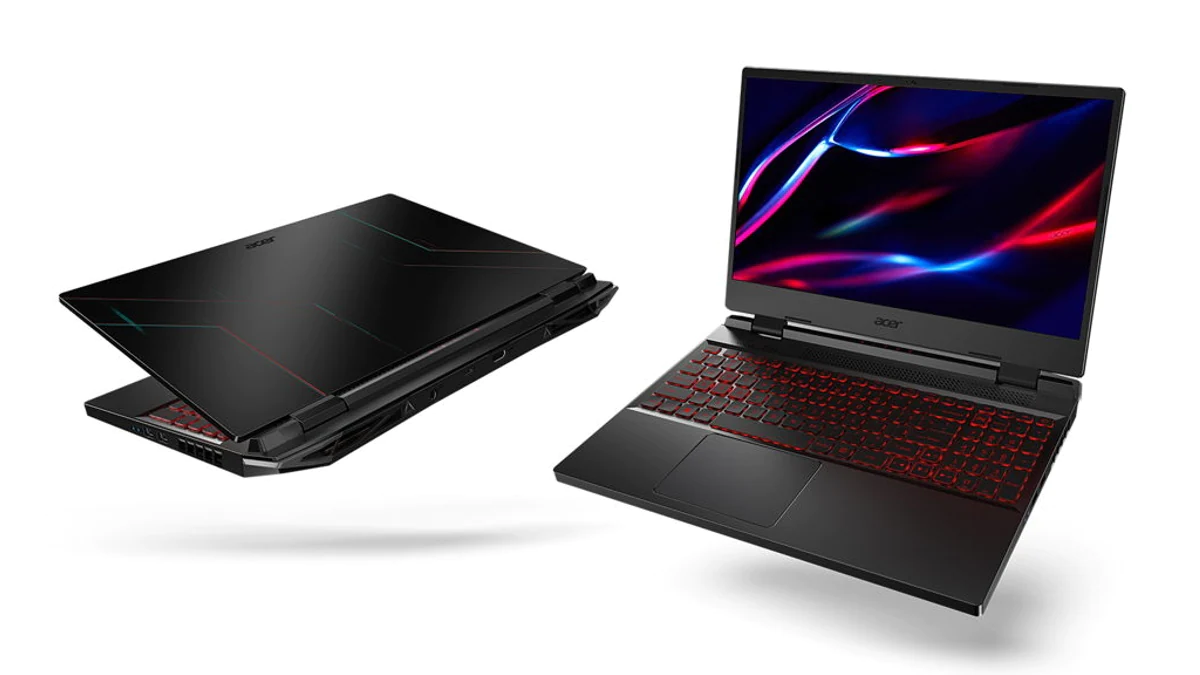
Dealing with lag, slow loading times, or dropped games can quickly turn any online gamer’s experience into an unpleasant one.
Thankfully, there is a tool that online gamers can use to eliminate these issues entirely during online multiplayer games: a dedicated gaming server.
A dedicated server in gaming is a private, fully remote server that can host games for the server admin (a player who sets up the dedicated server) and all remote clients who connect to the server. Using this type of private game server, gamers gain access to a reliable, stable, and fast connection to even the most memory-intensive online multiplayer games—all without having to share server resources with other websites or applications.
If you’re new to the concept of dedicated hosting, this guide is here to help by uncovering the power of dedicated gaming servers. We’ll also compare dedicated gaming servers to traditional online multiplayer game hosting models.
In addition, we will help you decide if a private game server is right for you, as well as teach you how to choose a dedicated gaming server hosting provider.
Online Multiplayer Game Hosting Models
Many online multiplayer games default to one of two different hosting models—client-server hosting or peer-to-peer (P2P) hosting. In most cases, both can cause a lag-ridden or non-customizable gaming experience. But these issues can be remedied by taking a more active role in managing a gaming server.
Client-Server Hosting Model
In a client-server hosting model, gaming servers (either shared servers or dedicated servers) are run by the main host. The host is often the game publisher or console manufacturer, and this host manages all individual player connections.
While this configuration works for most players, it lacks control and leaves players vulnerable to server issues the main host could experience.
P2P Hosting Model
In a P2P hosting model, a local client (player) who started the game or has the lowest latency plays the role of host for all other remote clients. With this configuration, the host-player uses their computer or console to host a local version of the game.
It is crucial that the host’s device have enough memory, processing power, bandwidth, and a solid Internet connection to keep the entire game running smoothly for all clients. If the host player has a weak device or a poor Internet connection, the game will experience lag, glitches, or crashes.

How Does a Private Game Server Work?
With a private game server, relying on a client-server or P2P hosting model becomes a thing of the past. These dedicated servers provide more memory, processing power, bandwidth, and storage capabilities than other hosting models. They also ensure players always have enough server resources to run any game fluidly.
Just like other hosting models, a dedicated gaming server handles all hosting duties for a game. This includes keeping the game in sync for all players connected to the server and managing many important aspects of the game, such as player:
- Locations.
- Activities.
- Interactions.
- Loadouts.
- And more.
Dedicated gaming servers also manage in-game aspects such as physics, rules, and scores.
Client Device Management vs Dedicated Gaming Server Management
It’s important to note that dedicated gaming servers do not run the game engine, so they do not require a graphics card (GPU) to render anything. Instead, these private game servers utilize high amounts of CPU and RAM to assist client devices with what to render and when. This means that client devices still manage aspects of the game like graphics, sound, and game controls.
Private Game Server Hosting: At-Home vs Managed
For example, when a professional hosting provider hosts your private game server, you don’t have to worry about hardware costs, server cooling, server monitoring, or security risks. In addition, you gain access to higher bandwidth options, which ultimately provide a better gaming experience.
Benefits of a Dedicated Gaming Server
A few of the most common benefits of hosting online multiplayer games on a dedicated gaming server include:
Control
When hosting with a dedicated gaming server, the server admin gains total control over the gaming experience, including:
- Defining the operating system.
- Choosing the processor and amount of RAM.
- Setting bandwidth speeds.
- Establishing the game configuration and rules.
- Determining who can enter the game (dedicated gaming servers can be private or public).
- Booting players who break the rules or have a high ping rate.
Performance
Because they have advanced hardware, high levels of RAM and CPU, and strong Internet connections, dedicated gaming servers enhance overall game performance for every player involved. These servers ensure there is never any lag, glitches, lost data, or crashes during gameplay.
And, as mentioned earlier, high-ping players can be removed from a session by the server admin to keep things running smoothly and fairly for all players.
Reliability
Dedicated gaming server hosting solutions provide 24/7 server monitoring, which means the game is always available to players. Most dedicated server providers feature backup generators to ensure game availability in case the local grid goes down.
Server admins also do not need to worry about their server overheating during high traffic demand, as robust hosting solutions offer advanced cooling systems in their data centers.
Security
Security is an important aspect of hosting on a dedicated gaming server. Fortunately, many hosting providers invest a great deal of resources into advanced cybersecurity measures such as:
The server admin also controls who can log into the game, making it easy to identify unknown remote clients trying to gain access.

Popular Titles That Benefit from a Dedicated Server
A dedicated gaming server offers many advantages that other hosting options cannot provide typical online game players. This is especially true for those who play online games featuring high workloads, such as if you wanted to create a dedicated Minecraft server. Other games that benefit from a dedicated gaming server include:
- Counter Strike.
- Ragnarok.
- Fortnite.
- PUBG.
- 7 Days to Die.
- Valheim.
- Ark.
- DOTA 2.
- Killing Floor.
- Arma.
- Terraria.
- Factorio.
When is a Dedicated Gaming Server Better Than a VPS?
Virtual private server (VPS) hosting is a virtual server environment within a dedicated server. When using a VPS to host a video game, a server admin is granted access to a dedicated portion of the server’s resources.
For example, if a VPS has 10 GB of RAM, a server admin might only get 2 GB out of the 10 GB of server resources dedicated to them, while the rest of the resources are reserved for other users. In essence, a VPS is much like renting out a portion of a private game server.
For many, opting for VPS is a sufficient solution that provides a better gaming experience than hosting on a fully shared server. However, if you’re an avid online gamer who wants enough processing power to handle high workloads, a dedicated server is the right choice.
At least 16GB of RAM is required to play modern multiplayer games, and more if you plan on multitasking. This means that you’ll most likely have to start out with a hosting provider’s most powerful VPS plan. If you need more RAM to ensure a smooth gaming experience, a dedicated server can give you that flexibility.
When is a Dedicated Gaming Server Not the Best Choice?
While a dedicated gaming server comes with numerous advantages in terms of performance and other areas, it also comes at a higher price than other hosting solutions like shared or VPS servers. This remains true regardless of if you set up your own dedicated server at home or rent one from a hosting provider.
Opting for a dedicated server setup at home means you’ll need to invest in expensive hardware and equipment, as well as higher energy bills if you plan to make your server available to the public. Running a physical server also means the server admin is responsible for cybersecurity and hardware and software maintenance, which means a high level of technical ability is required.
If you plan on renting a dedicated gaming server from a hosting provider, many of the back-end costs of running a physical server are eliminated. However, the monthly fees for these servers are typically higher than other hosting solutions, and security add-ons like DDoS protection can add to costs as well.
Justifying these higher server costs is easy for avid gamers, gaming communities, and developers of all sizes. But for less tech-savvy beginners or those who don’t play often, less expensive hosting solutions are likely a better, more wallet-friendly option.
How to Choose a Dedicated Gaming Server Provider
When choosing a dedicated gaming server hosting provider, there are many factors you should consider ensuring it aligns with your gaming goals, including:
- Compatibility: Certain games have higher workloads than others, which means the dedicated gaming server configuration you choose must be robust enough to handle them. In addition, look for a hosting provider that allows you to easily scale up or down your server resources.
- Top-Tier hardware: The hosting provider you choose should offer industry-leading hardware, such as solid-state drives (SSDs), high-speed RAM, and advanced processors.
- Reliability: Server uptime is important when choosing a hosting provider. Make sure to find out uptime guarantees so you won’t have to deal with downtimes or game crashes.
- Usability: As a server admin, your hosting provider should offer you a simplified and streamlined user interface that allows you to change your server configuration quickly.
- Security: Advanced security should be a prerequisite for the hosting provider you choose. Look for dedicated gaming server hosts that provide things like DDoS protection and robust firewalls.
If you’re looking for a private game server provider you can trust, Liquid Web can help you take your online gaming experience to the next level. With fully customizable dedicated server hosting—as well as real-time monitoring and 100% Power & Network Uptime Guarantees—you gain access to a managed dedicated server solution that will support your gaming needs at a price you can afford.
Plus, with add-on services like server backups and DDoS protection, you can rest assured your data stays protected.
[ad_2]
Source link






